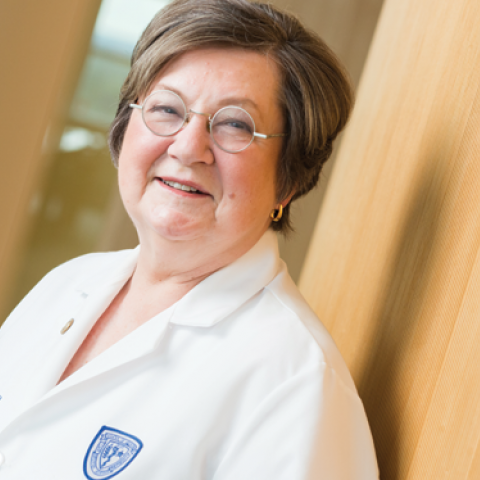It’s finally June—a most amazing time of year. The full leafy green of summer has opened on our trees and shrubs. The State of Ohio is beginning to open, too, tentatively, after COVID lockdown. So is the university. For the School, many of us, especially the lab-based people, never left, but modified our behavior to work safely throughout the lockdown months. So far, we seem to have come through with our personnel and labs intact, our research continuing, and we are opening up our plans for education the next academic year. We fully expect another wave of COVID—but we are better prepared.
In some ways we emerge stronger than before. Compared to the early days of COVID, now we are convinced of the value of social distancing and masking in preventing transmission, and the rates are dropping. Still, we pine for a vaccine, and we covet herd immunity. But we feel more confident in venturing out and in returning to offices and stores. Still cautious, but it’s better.
We have learned a great deal about delivering education remotely. The HoloLens jumps out as a terrific remote vehicle for education and we now know that we can do more with it. Simulation emerges as a critical venue for both preclinical and clinical education. And although we suffer from Zoom fatigue, some of us have become amazingly skilled at leading discussions and drawing out the introverts over the thumbnails we see on our screens.
We have also had a banner month in research so far. In the first eight days of June, our faculty submitted NIH grants with face value over $25M above the same eight days last year. Our medical school research administration was exhausted after the June 5 NIH deadline date! With the great support provided by the Research Office and by Jill Stanley and her team in the Facilities Office, our BSL3 and BSL2+ facilities offer new opportunities to investigators—and it is reflected in the grants being submitted. And the COVID Research Task Force, now led by Jon Karn and Nora Singer, and supported by Erin Fogarty and Joan Schenkel, continues to catalyze collaborations. More than 150 applications, large and small, internal and external, have been tallied by this group, truly a tour de force.
We cannot neglect the financial challenges imposed by COVID on our university, and indeed the entire national and world economy. We have had to reduce spending—without curbing our ambitions for education and research. Our basic science chairs have done just that, and offered enough cost savings to get us across the finish line for the university’s requirements. Although we must restrain spending now, we do hope that we will be able to resume investment very soon to drive our trajectory even higher.
On the second of this month, the reality of racism in all its horror came crashing into us. The death of an unarmed Black man at the hands of police sparked national protests (some of which became riotous) and soul-searching. The drumbeats of police brutalizing Black men have not let up, even with the protests, and the deaths continue. Although we have seen this pattern before, somehow this time it feels different—as if real change may be afoot. The full range of American society has risen in outrage. And we, as physicians, have responded, too, with White Coats for Black Lives, and at least three hospital-sponsored protests in which the healers knelt on the lawn for 8 minutes 46 seconds, the time it took George Floyd to die under the weight of a Minneapolis policeman’s knee. We have held numerous discussions, formal and informal, institutional and private. We arise with new resolve to mitigate the health pandemic of racism, and we must be very thoughtful as to how we go about it.
Yes, it’s June. And besides confronting the frightening realities of racism, and facing down COVID with simple tools, the rhythm of life goes on. The roses have bloomed, the birds are nesting, and the hawks that frequent our yard have fledged a baby and are teaching it to hunt. The hunting lessons don’t seem to be going all that well, but we are sure the fledgling will learn.
As the COVID crisis develops, and the impacts of structural racism mount, we, too, must learn. June also brings the summer solstice, our longest day of the year. May it give us the light to see.
Pam


